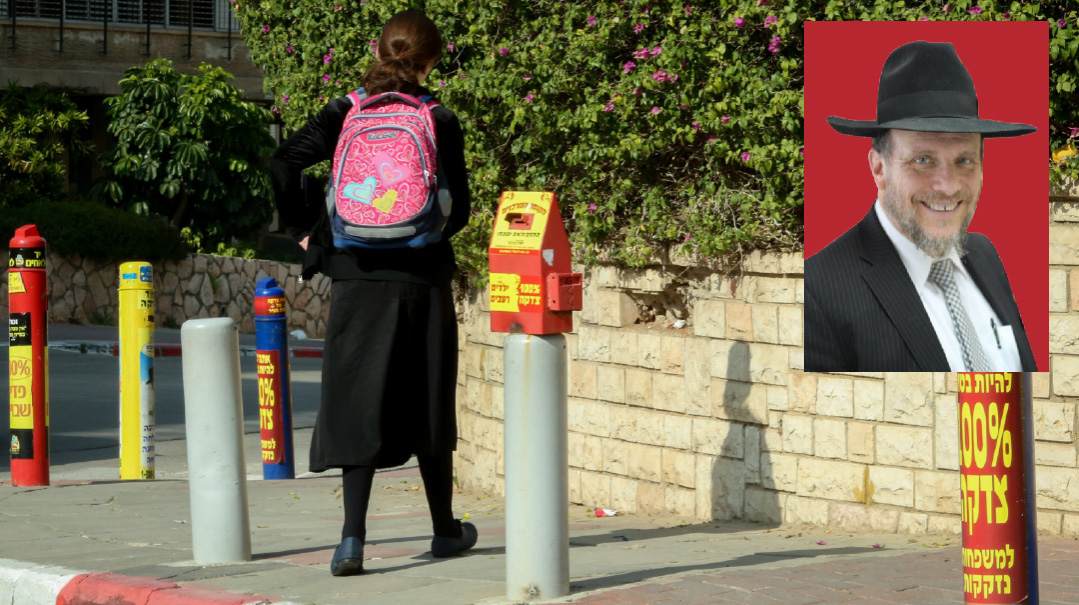“Why Don’t Boys’ Schools Talk about Technology?”

“We're using blanket rules to shroud the values behind them”

Question
Why do the girls’ schools talk so much about technology — ranging from the hashkafic issues to practical ramifications and eitzos — equipping our teenage daughters with the tools to deal with the nisayon, while the boys’ high schools seem to ignore it? The message for the boys seems to be basically limited to “assur.” But later down the line, as adults, these boys may in fact have to use technology. What tools and understanding will they have?
Answer
Although I was the principal of a boy’s high school for many years before opening the seminary, long before smartphones were available, I’m still not sure if your question is a result of your experience or reflects a general phenomenon that you have observed. If indeed this is a widespread reality, it would be best to discuss it in the context of a general educational challenge that our generation’s yeshivos and Bais Yaakovs face, that we all could use chizuk in addressing.
Not so many years ago, the grandfathers and grandmothers of today’s yeshivah and Bais Yaakov students were accepted in any Torah institution they wished to attend. Almost every yeshivah and Bais Yaakov was a kiruv school, working to get as many children as possible to attend. With tremendous mesirus nefesh, the schools’ founders did everything possible to get another Jewish boy or girl to join our ranks.
Baruch Hashem, in the past 60 years, our schools have experienced tremendous exponential growth. And while today as well we have public servants with mesirus nefesh who are building mosdos to service our children, unfortunately, one piece has gotten lost to a certain extent.
The first generation of yeshivah and Bais Yaakov educators in the US and Europe recognized the need to explain, inspire, and teach their students the standards of their institutions. Now, however, we are building schools for a generation that “knows” what is right and wrong. We’re aware that our students know what is allowed and what is assur, and we assume this knowledge alone will be enough to keep them on the straight path. For many, this is indeed the case. But we lose out tremendous chinuch possibilities when “rules” replace chinuch.
Rules are necessary to uphold the values we hold dear and want to pass on to our children and students. But the assumption that our students will perceive on their own the values that our rules are meant to keep in place is a risky one. The greatest yeshivos in Europe were emptied by the sweeping socialist and Bolshevik revolutions. The mussar movement and chassidus saved European Yiddishkeit by adding intellect and heart, creating real connections between knowledge, practice, and the people.
Of course, we require compliance, but we are also required to make sure that our children and students respect and connect to the values behind the rules we are demanding they comply with. Otherwise, once they are no longer in the framework of the home or school, we will see thousands of alumni from all our institutions loosening up and letting go of things they “knew” and complied with for years.
It is imperative to make rules. It is even more imperative to teach the values the rules represent with depth and understanding. We need to connect our generation of students to the values so dear to us by more than just social pressure and expectations.
Heading a Torah institution in today’s world is not an easy task. We cannot run schools where students are only expected to comply with the rules after they understand them. We need to implement rules to create a framework and atmosphere. We need students to keep those rules in order for the framework to exist. We can never forget, though, that many of our students will struggle with some of those rules. Those who show their displeasure outwardly, we know about; those who silently resent the rules while continuing to comply are the real risk to the next generation.
When we do see a student struggling with compliance, we need to deal with the issue sensitively, remembering that the student may have no inkling of understanding or appreciation for the standard or rule. It’s easy to say that a student who doesn’t display compliance doesn’t belong in my school, but that might not be the truth. My rebbi, Rav Wolbe z”l, told us about a mashgiach who was hired by a yeshivah that was having difficulty with boys who were breaking rules where the learning wasn’t up to par. In the first two weeks, he sent 30 boys away.
“What a great mechanech. He made the yeshivah into a good yeshivah,” Rav Wolbe commented with more than a hint of sarcasm.
Rav Wolbe was very strongly opposed to throwing talmidim or talmidos out of schools. For every quote that principals would bring in the name of gedolei Yisrael to back up the necessity of throwing out a student, Rav Wolbe would bring another to the contrary.
The yeshivos you speak of are facing a horrific quandary. On the one hand, you need a rule, understood or not, that says there will be no use of certain technologies in our yeshivah! But an infraction forces the hanhalah into a lose-lose spot. If you understand the individual and work with his indiscretions, then you are conveying that you aren’t really serious about the rule. If a student knows there is a zero-tolerance rule, it would seem that you need to show that it’s for real, or there is no point in saying zero tolerance. Conversely, though, if you display “zero tolerance” and send the boy away, then you could be dealing with pikuach nefesh.
Practically, how can we deal with this issue? We are left with two possibilities. The first is to make the rule but create alternative serious consequences for the infraction. In this case, zero tolerance doesn’t mean you are done and finished, but that there will be a consequence. But we should not allow the first consequence of a breach of rules to be expulsion, the final and ultimate consequence. There can be a degreed response. Suspension of participation in classes or activities, suspension of privileges, the need to check in or report to a staff member — these are all consequences which create an atmosphere of serious reflection, without the pikuach nefesh of the ultimate punishment.
The second option is to make the rule, while recognizing that the rule only represents the value that it protects. This means that we are required to find the path to our students’ hearts to inculcate those values. Whether through mussar shmuessen, vaadim, Melaveh Malkahs, or Shabbos derashos, we need to find a way to make our values our students’ values as well. We need to understand the values and share them in ways that will help our students integrate them into their system of thought.
Our students are living in a world surrounded by the culture of fun, pleasure, and freedom. What we have to offer is purpose, meaning, and direction, which bring satisfaction, joy and fulfillment, and our medium is Torah, mitzvos and maasim tovim. What we are offering is so much more attractive and so much more real, but if we want our students to appreciate that, we must give over clarity, inspiration and absolute simchah. We should show our children and students that Torah and mitzvos are golden opportunities. If not, those values might simply disappear when the students are no longer under our supervision.
The scariest excuse that has been whispered explaining the silence regarding these issues has been that if we speak about it, it means that our students are dealing with it, and that would hurt the school’s reputation. Or, that if we discuss it, the students will think that it’s okay to be dealing with it, because otherwise it should be off the table and not discussed.
What those rationalizations lead to, though, is that those very practices that are taboo to us become the hidden vices of people who were never given tools to fight with. In the Torah, Hashem speaks about the unspeakable. We are taught that we should have no part in the most extreme immorality. Human nature is vulnerable to taavos. These depravities exist in the world, and they must be addressed.
But Hashem does not just tell us that it is assur; not everything is a chok. In exhorting us to stay away from these abominations, the Torah explains, “Ki b’chol eleh nitme’u hagoyim asher ani mishaleiach lifneichem.” Klal Yisrael had a visceral understanding of the difference between them and the nations, and the knowledge that this is how the nations they were now displacing in Eretz Yisrael had lived was enough for them to understand why they could not do the same.
The Torah does not ignore evil, and neither can we. We must inculcate the true sense of Atah Bechartanu, the privilege of being Hashem’s chosen ones, and a connection to that pride and responsibility. Then, even when the winds of hefkerus, permissiveness, and freeness are sweeping across the world we live in, our cherished children and students will have the fortitude to stand up to those challenges with greatness.
Rabbi Zecharya Greenwald is a world-renowned educator and lecturer and the author of Preparing your Child for Success (ArtScroll/Mesorah). He founded Darchei Shalom Educational Center, an alternative high school for boys at risk, in Israel 33 years ago, and 23 years ago he founded Me’ohr Bais Yaakov Teacher’s Seminary in Jerusalem, where he currently serves as dean.
This column will appear monthly
(Originally featured in Mishpacha, Issue 933.
Oops! We could not locate your form.







